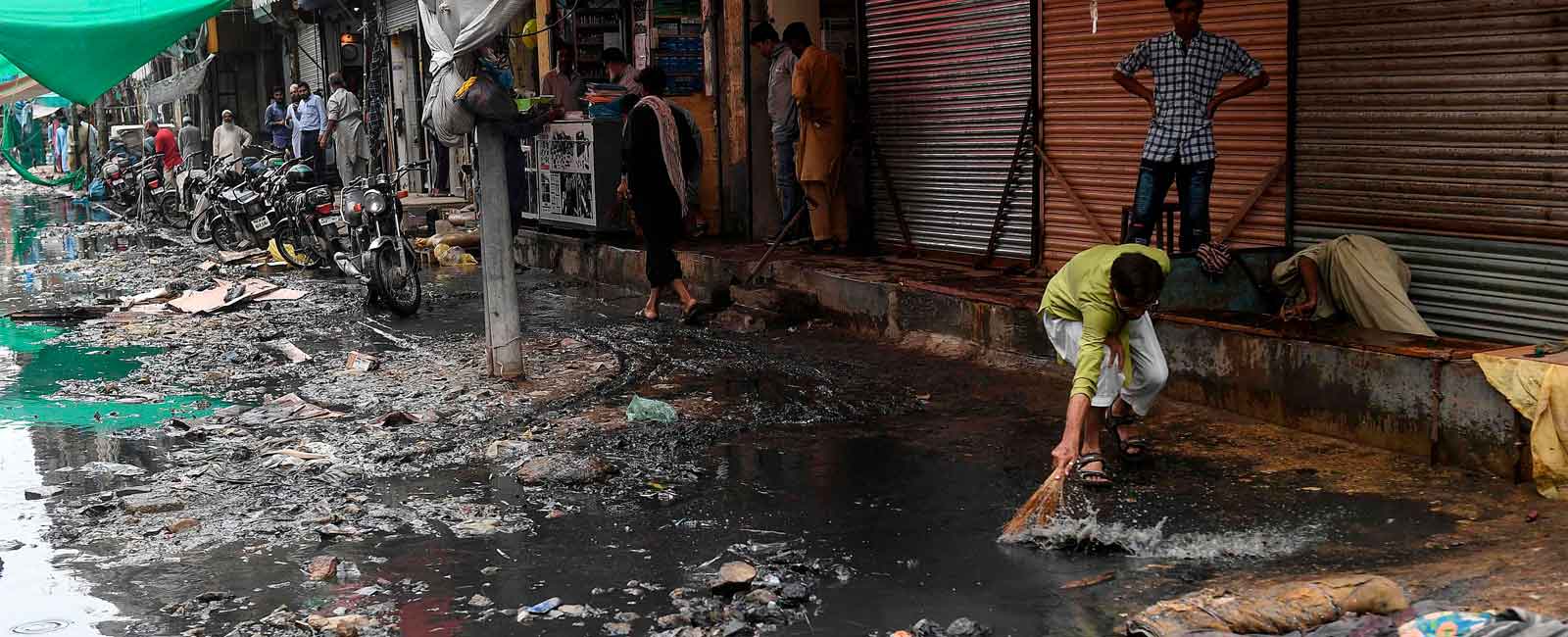'Karachi is dead, and we have killed it'
As Karachi crumbled bit by bit and its facade chipped away piece by piece, we only built taller walls

Five days without electricity, sitting in this oppressive heat, enveloped in the creeping darkness that is now ubiquitous in the 'City of Lights', and I am taking stock of my life as a Karachiite.
I have realised that even in my fondest memories of Karachi, it has always been an ugly city, but I used to tell myself that it was okay because Karachi had a spirit, an eccentricity, a personality - it had and was its own vibe.
But that's a thing of the past.
In the last decade or so we have seen this city sink into an unmanageable squalor that seeps into our lives laden with indignities and abuses that we have comfortably adapted to while glorifying the debilitating, dehumanizing chaos as 'life' - and that's what it is to be a Karachiite.
We saw it coming; as the city crumbled bit by bit, its facade chipped away piece by piece, we only built taller walls.
No electricity? Get a generator.
No clean drinking water? Get bottled water.
No running water? Get a private tanker.
We paid our way out of an inevitable grave and locked ourselves in ever-shrinking bubbles of privilege. What happened to these bubbles is what was expected - they burst, and the water got in, sewage and all.
Here are some buzzwords Karachiites love using to describe themselves; 'resilient', 'survivors', 'helpful' - we're a humble lot aren't we? All of these words, coming from a city where people across socioeconomic classes partake in tax avoidance, electricity and gas theft, land encroachment, unsustainable land reclamation, indiscriminate littering, and illegal shortcuts we proudly call 'jugaad' - is like a pyromaniac patting himself on the back for surviving the fire and helping others in the process.
Piece by piece we have stripped a city of its parts, and now that it lies here dying at our feet, naked and dilapidated, we are telling it that it's 'resilient', it's a 'survivor'.
Here's some news for us.
Karachiites are not resilient. We are pliant, we are complacent. We adapt to any indignity thrown at us and call it resilience. 'Karachiites are resilient people' is a hollow chant that the rich have made to absolve themselves of its problems and the poor have regurgitated to appease themselves that this miserable life in a corrupt, sprawling, decaying city is a test for which there will be a reward in the Hereafter.
Karachiites are expendable, we are mere statistics-in-waiting — like that young man who got electrocuted to death in the stagnated rainwater — while claiming that things aren't that as bad — like another young man who found some roads to be clear a few hours after torrential showers took a breather.
The truth is that we are garbage, and this isn't hyperbole. The very water we clean ourselves with - privileged and poor alike - is contaminated with faeces, a fact we all know but cannot begin to acknowledge lest it shatters our illusions. This is our reality, and we will continue to adapt to even more wretchedness because it is who we are.
Karachi is lost; it will limp on until climate change, overpopulation and water scarcity will end its misery by destroying it completely.
Water scarcity already exists in the city, by 2030 the privileged will feel the pinch, and by 2050 climate change will help the Arabian Sea reclaim the land we Karachiites devoured from it in our avarice - residential areas like Clifton and DHA are on the front lines of Nature's vengeance.
There's nothing exceptional about a city dying; some of the greatest cities in the world have been obliterated into oblivion, remembered fondly through myths and legends. Karachi may not have become a 'great city', but it didn't have to die a slow and painful death either, it didn't have to be ugly and grotesque when it so easily could have been beautiful and sublime.
But what is a city if not the collective action of its denizens, each bringing their own incandescence to make this City of Lights illuminate the Arabian Sea.
Alas! That was but a fool's dream. Now all of us — the miserable scavengers and failed torchbearers — brood in the darkness of our own making as we ponder over the horror that we leave for our children as an inheritance: a corpse of a metropolis that they have to work to put out of its affliction and bury deep into the ground so that no one remembers our shame.
—COVER IMAGE: A man cleans in front of shops after a street flooded following heavy monsoon rains in Karachi on August 31, 2020. -AFP




